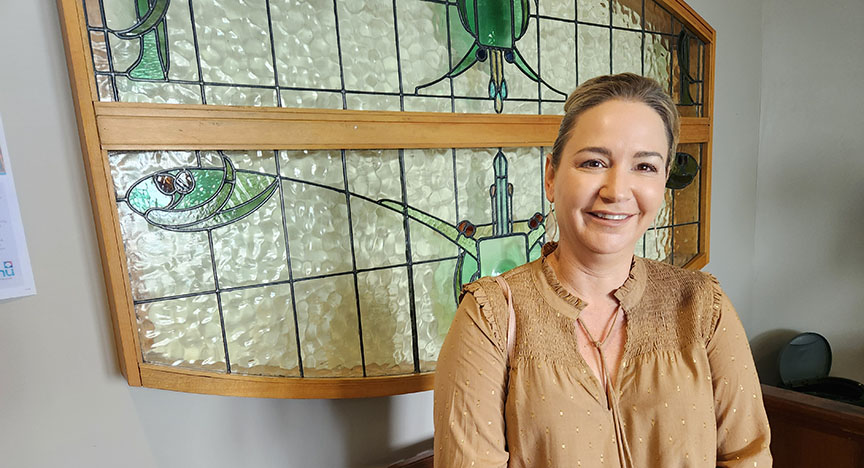
Kerry Carfrae was blowing balloons for her daughter’s birthday party when she felt a heavy pressure on her chest and became breathless.
It marked the onset of intense chest pains that would come and go almost daily.
In severe pain and fearing a heart attack, Kerry presented to the Ipswich Hospital Emergency Department where she was referred to hospital cardiologist Dr Johanne Neill.
Dr Neill ordered a range of tests, but the results did not fully explain the severity of Kerry’s pain.
This led Dr Neill to suspect that Kerry had a problem with the tiny blood vessels of her heart, which can be difficult to formally diagnose as the required test procedure is not widely available.
“This condition, usually seen in women, can't be seen on standard angiograms and CT scans,” Dr Neill said.
“Although clinicians can treat this condition successfully without a definitive diagnosis, patients prefer to know exactly what the problem is, and I wanted Kerry to have that peace of mind.”
That is how Kerry came to be the first patient to undergo a coronary microvascular investigation at Ipswich Hospital’s Cardiac Catheter Laboratory.
The new service to investigate conditions like Kerry's is one of very few in Queensland.
Kerry said having a firm diagnosis did bring her peace of mind. While she will probably have the heart condition for the rest of her life, her tailored treatment plan means she rarely has chest pain anymore.
“I’m so grateful that Dr Neill kept advocating for me and was open to exploring my symptoms further to reassure me,” she said.
“It was hard thinking that, maybe, the symptoms were in my head, or the result of a panic attack or some kind of anxiety. Now I know for sure what we are dealing with, and that has really helped.”
Kerry presented her insights as a cardiac patient at a recent knowledge-sharing forum of Ipswich Hospital clinicians and regional GPs.
The Ipswich area has the sixth highest rate of hospital admissions due to cardiac conditions in Australia.
The Ipswich Hospital cardiac catheter lab opened in 2022 to give patients more timely access to cardiac services, such as angiograms and stent insertions, closer to home.